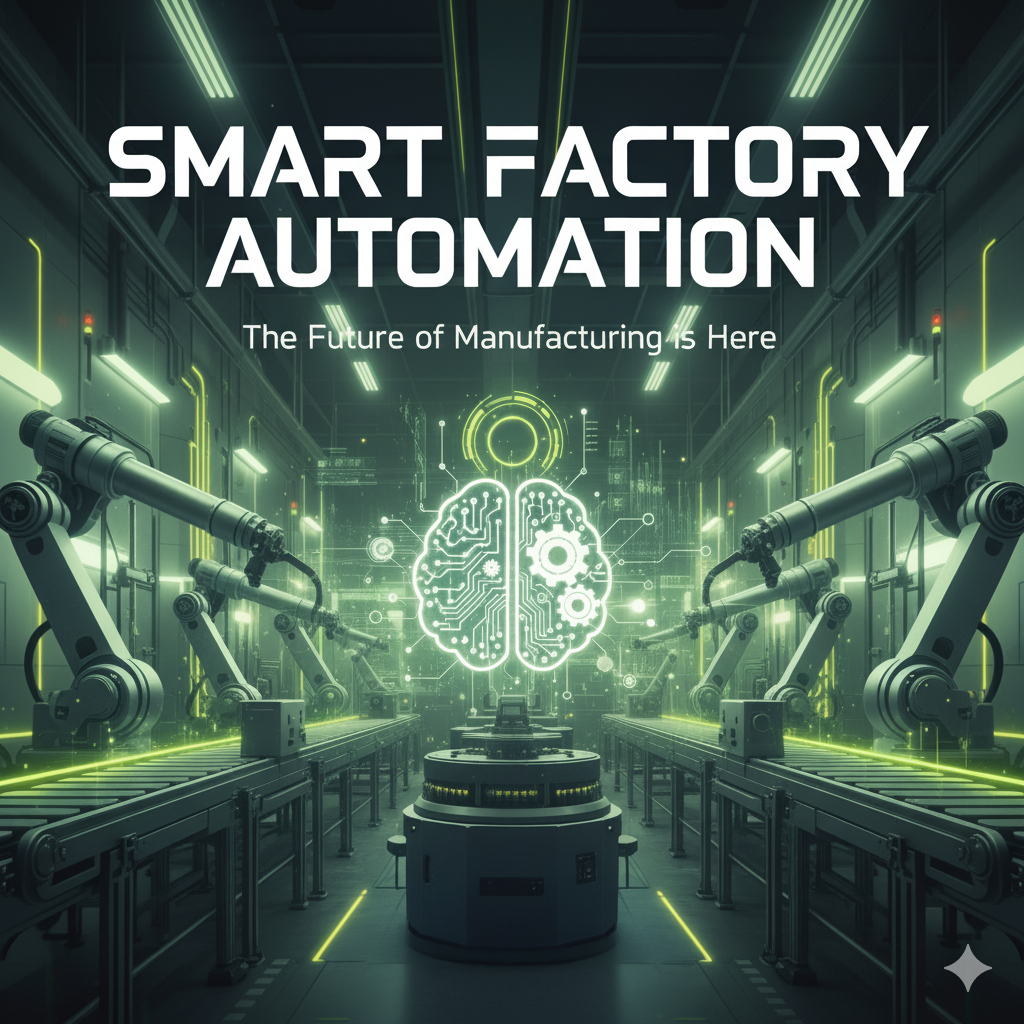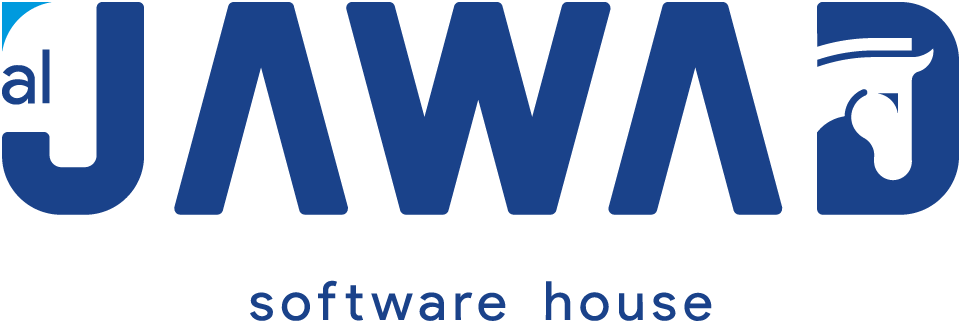Introduction
The manufacturing landscape is rapidly evolving, and businesses are turning to smart factory automation to stay competitive. By leveraging IoT (Internet of Things) and AI (Artificial Intelligence) technologies, manufacturers can optimize production, reduce downtime, and improve overall efficiency. Modern manufacturing software solutions enable data-driven decision-making, predictive maintenance, and seamless integration across the production floor, creating truly intelligent manufacturing operations.

1. What is Smart Factory Automation?
Smart factory automation refers to the use of advanced digital technologies to create a connected, self-optimizing manufacturing environment. Key components include:
- IoT Sensors: Devices that collect real-time data from machinery, production lines, and inventory.
- AI Algorithms: Tools that analyze data to optimize production, predict failures, and recommend improvements.
- Robotics and Automation: Machines that perform repetitive or hazardous tasks with precision.
- Connected Systems: Integration of production, inventory, supply chain, and quality management systems.
The result is a factory that can monitor itself, make informed decisions, and respond to changing conditions without manual intervention.
2. Benefits of Leveraging IoT and AI in Manufacturing
Adopting IoT and AI technologies in manufacturing software brings several transformative benefits:
a. Predictive Maintenance
- Sensors monitor machine health in real-time.
- AI analyzes patterns to predict failures before they occur.
- Reduces unexpected downtime and maintenance costs.
b. Improved Production Efficiency
- AI algorithms optimize production schedules.
- IoT devices track workflow bottlenecks.
- Ensures maximum utilization of resources and equipment.
c. Quality Control and Compliance
- Real-time monitoring of product quality using sensors and cameras.
- AI detects anomalies and defects early in the production process.
- Ensures adherence to industry standards and reduces waste.
d. Energy and Cost Savings
- IoT tracks energy consumption across machines.
- AI identifies areas for efficiency improvements.
- Reduces operational costs and environmental footprint.
3. Key Features of Smart Manufacturing Software
Modern manufacturing software integrates IoT and AI to deliver actionable insights. Essential features include:
- Real-Time Analytics: Dashboards displaying production metrics and performance trends.
- Predictive Maintenance Modules: Alerts and recommendations to prevent machine failures.
- Inventory and Supply Chain Integration: Automated tracking and replenishment of raw materials.
- Machine Learning Algorithms: Continuously improve processes based on historical data.
- Remote Monitoring: Access production data and control systems from anywhere.
These features make smart factories more agile, responsive, and data-driven.
4. Secondary Keywords for SEO
To enhance SEO, include these related keywords naturally in your blog:
- Intelligent manufacturing solutions
- Industrial IoT in manufacturing
- AI-driven production optimization
- Smart factory software
- Predictive maintenance software
- Manufacturing process automation
- Real-time production analytics
- Connected factory solutions
5. Implementation Strategies
Implementing smart factory automation requires a structured approach:
- Assess Current Operations: Identify areas where IoT and AI can have the most impact.
- Invest in IoT Devices: Equip machines with sensors to collect production and environmental data.
- Integrate Manufacturing Software: Ensure software can process and analyze IoT data effectively.
- Train Workforce: Employees should understand new technologies and how to leverage insights.
- Start Small and Scale: Begin with critical production lines before expanding across the factory.
By following these steps, manufacturers can reduce risk and ensure a smooth transition to intelligent manufacturing.
6. The Future of Smart Factory Automation
The adoption of IoT and AI in manufacturing is only expected to grow. Emerging trends include:
- AI-powered Robotics: Collaborative robots (cobots) working alongside humans.
- Edge Computing: Processing data closer to machines for faster decision-making.
- Digital Twins: Virtual models of physical assets to simulate and optimize processes.
- Integration with ERP and MES Systems: Seamless connection of production, finance, and logistics for end-to-end efficiency.
Manufacturers who embrace these technologies will gain a competitive edge in cost efficiency, quality, and flexibility.
Conclusion
Smart factory automation powered by IoT and AI is transforming the manufacturing industry. By implementing intelligent manufacturing software, businesses can achieve predictive maintenance, improve efficiency, reduce costs, and enhance product quality. The result is a connected, data-driven, and agile factory capable of responding quickly to market demands. Investing in smart factory technologies today prepares manufacturers for a more efficient and sustainable future.
Inventory management software
Adept’s Inventory Management Software enables UAE businesses to gain complete visibility and control over stock levels, warehouse operations, and order fulfillment—through a smart, cloud-ready solution built for accuracy, efficiency, and scale. Whether you’re managing a single retail outlet or a multi-location enterprise, our system helps reduce stock discrepancies, optimize reordering, and streamline supply chain operations.
✓ Real-time inventory tracking with barcode, batch, and serial number support
✓ Automated stock level alerts and reorder point configuration
✓ Multi-warehouse management with stock transfer and location mapping
✓ Seamless integration with POS, accounting, ERP, and eCommerce platforms
✓ Cloud-based with on-premise and hybrid deployment flexibility
✓ Detailed inventory analytics, reporting, and demand forecasting tools
✓ Local implementation, user training, and dedicated UAE-based support
Adept’s Inventory Management Software is designed to help businesses in retail, manufacturing, distribution, and trading stay ahead with smarter inventory decisions and improved operational efficiency.
adept Business Solutions
Adept Business Solutions offers comprehensive ERP solutions to businesses of all sizes, leveraging the power of Odoo to transform operations. Their services include consultation, implementation, customization, training, and ongoing support. They specialize in optimizing workflows for industries such as retail, manufacturing, and professional services, ensuring seamless integration with existing systems.

OAKLAND - odooERP.ae
OAKLAND provides a wide range of Odoo services, including system customization, deployment, and support. They focus on delivering comprehensive ERP solutions that address the unique needs of SMEs and enterprises. Their solutions cover key areas such as finance, inventory management, CRM, and human resources.

Al Jawad Software House
With over 14 years of experience, Al Jawad Software House is a trusted provider of Odoo solutions. They specialize in delivering customized ERP implementations that enhance productivity and efficiency across diverse industries. Their team provides ongoing support to ensure long-term client success.
The Future of Business Management
with Adept ERP
At Adept Business Solutions, we specialize in providing cutting-edge ERP and accounting software solutions designed to meet the unique needs of businesses in Dubai, UAE. With over 15 years of industry expertise, we are dedicated to empowering organizations with innovative tools and personalized support for sustainable success.
- Tailored Solutions for Your Business Needs
- Expert Guidance and Support
- Enhanced Operational Efficiency
BoOK YOUR DEMO !
To book your Product Demo please complete the form:



